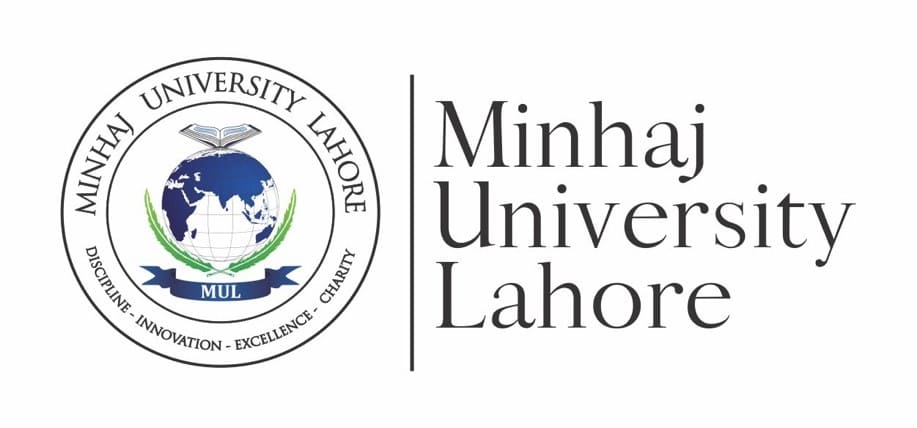Bridging Equity and Excellence: A Comparative Study of Waqf and Performance-Based Research Funding in Academic Library Finance
DOI:
https://doi.org/10.58932/MULD0051Keywords:
Waqf, Financial sustainability, Academic libraries, Librarian, Entrepreneurial competencies, Performance-based research fund, Community engagementAbstract
Academic libraries are facing escalating pressures from reduced public funding, rising operational costs, and the growing need for digital innovation. As institutions seek resilient financial models, different countries have adopted varied funding mechanisms shaped by local contexts. This study offers a comparative analysis of two contrasting approaches: Malaysia’s Waqf-based model, rooted in ethical community contributions, and New Zealand’s Performance-Based Research Fund (PBRF), driven by measurable academic outputs. Using a qualitative multi-case study involving two Malaysian universities and one from New Zealand, data were gathered through interviews and document analysis. The findings indicate that Waqf provides inclusive, socially anchored support for targeted projects such as infrastructure upgrades and digital resources. However, its scalability remains limited due to rigid governance structures and its positioning as a complementary funding mechanism rather than a primary institutional source. In contrast, the PBRF enhances institutional research performance and international visibility but tends to deprioritize community engagement and equitable access. This study contributes to the discourse on sustainable library funding by proposing a hybrid framework that balances the ethical stewardship of Waqf with the structured accountability of PBRF. The findings offer practical implications for higher education leaders and policymakers navigating post-pandemic academic finance reforms, particularly in aligning institutional performance with broader societal responsibilities.
© 2025 The Author(s). Licensed under CC BY-NC 4.0.
References
Ali, A. F. M., Amir Zal, W. A., Ghazali, N., Kosnin, R., & Radzi, N. A. M. (2021). Waqf as a medium for community development: A review on literature from 2010 to 2020. Library Philosophy and Practice.
Ahmad, S., Qamar, A. J., Bhatti, M. A. A., & Bashir, U. (2023). Integrating Islamic Ethics with Modern Governance: A Comprehensive Framework for Accountability Across Religious, Social, and Economic Dimensions. Al-Irfan, 8(15), 51-79.
Amezzian, M. (2024). Waqf in Higher Educational Institutions: Factors of Development in the Abbasid Era (334-656 AH).
Akbar, A., Ahmad, S., Khalid, M., Aslam, M. F., & Bhatti, M. A. A. (2024). Analyzing the Effect of Green HRM on Organizational Performance. Bulletin of Business and Economics (BBE), 13(2), 864-869.
Arab, S. H. Y., & Zakariyah, H. (2023). Waqf funds for higher education in Malaysia and Bahrain: Drawing lessons from the experience. Milkiyah: Jurnal Hukum Ekonomi Syariah, 2(2), 105-114.
Arshad, R., Zain, N. M., Urus, S. T., & Chakir, A. (2018). Modelling maqasid waqf performance measures in waqf institutions. Global Journal Al-Thaqafah, 157-169.
Akbar, A., Ahmad, S., Nadim, M., Bhatti, M. A. A., & Khan, H. (2024). Affect of Hrm on Employee Motivation Towards Green Creativity and Initiatives. Center for Management Science Research, 2(3), 197-216.
Anjum, G., & Bhatti, M. A. A. Discover the Impact of Internet Usage on the Academic Performance of Library and Information Science Students. Indonesian Journal of Multidiciplinary Research, 4(2), 377-388.
Baxter, P., & Jack, S. (2008). Qualitative case study methodology: Study design and implementation for novice researchers. The Qualitative Report, 13(4), 544-559.
Buckle, R. A., & Creedy, J. (2020). The ‘disciplinary effect’of the performance-based research fund process in New Zealand. New Zealand Economic Papers, 54(2), 107-126.
Bhatti, M. B. A., & Khan, M. K. (2024). Implications of Project Managers’ Competencies on Project Success Moderating effect of Project Risk Management: A case of IT Sector in Lahore. Pakistan Journal of Multidisciplinary Research, 5(1), 66-85.
Budget 2024: Higher education sector receives RM16.3 billion for comprehensive benefit. (2023, October 14). Malay Mail. https://www.malaymail.com/news/malaysia/2023/10/14/budget-2024-higher-education-sector-receives-rm163b-for-comprehensive-benefit-say-educators-students/96276
Bhatti, M. B. A., & Durrani, M. K. (2024). The effect of project managers’ competencies on project success with mediating role of project stakeholders’ engagement: A case of IT sector. Journal of Management Info, 11(1), 51-73.
Cargill, S. S., Spencer, B., & Spencer, B. (2024). Challenges and Lessons from Conducting a Community-Engaged Evaluation of a Community Advisory Board–A Case Study from Flint. Progress in Community Health Partnerships: Research, Education, and Action, 18(1), 31-36.
Bhatti, M. A. A., & Nazir, M. U. (2024). The Impact of Project Process Management on Sustainable Project Success in the Construction Sector: The Moderating Role of Risk Management Practices. Bulletin of Business and Economics (BBE), 13(2), 1065-1072.
Chait, R. P. (2023). Overcoming governance challenges in higher education. Changing Higher Ed. Retrieved from https://changinghighered.com/governance-challenges-in-higher-education/
Çizakça, M. (2000). A history of philanthropic foundations: The Islamic world from the seventh century to the present (pp. 2-10). Boğaziçi University Press.
Convene. (2024, April 21). Higher education governance: Challenges and trends. Convene. Retrieved from https://www.azeusconvene.com/articles/higher-education-governance
Corrall, S. (2017). Successful fundraising for the academic library: Philanthropy in higher education. Chandos Publishing.
Creswell, J. W., & Creswell, J. D. (2017). Research design: Qualitative, quantitative, and mixed methods approaches. Sage publications.
Curtis, C. (2008). Funding academic libraries: Challenges and strategies. Library Management, 29(4/5), 345–356. https://doi.org/10.1108/01435120810874925
Federal Ministry of Education and Research (BMBF). (2019). Excellence Strategy: Strengthening cutting-edge research in Germany. https://www.bmbf.de/bmbf/en/research/excellence-strategy/excellence-strategy_node.html
Galagedera, D. U., Fukuyama, H., Watson, J., & Tan, E. K. (2020). Do mutual fund managers earn their fees? New measures for performance appraisal. European Journal of Operational Research, 287(2), 653-667.
Di Gregorio, E., & Savage, G. C. (2020). Global school funding debates and reforms. In Oxford Research Encyclopedia of Education.
Gustafsson, J. (2017). Single case studies vs. multiple case studies: A comparative study.
Jawad, S., Naveed, H., & Akram, M. B. (2020). Academic Performance of Enrolled Students in the University of Lahore, Pakistan. Quest Journal of Management and Social Sciences, 2(2), 357-365.
Hasan, H., Azmi, N. F., Mud, N. N. N., & Ahmad, I. (2020). Waqf efficiency: CRS, VRS and malmquist total factor productivity index via data envelopment analysis (DEA). International Journal of Innovation, Creativity and Change, 10(10), 71-83.
Hillman, N. W., & Corral, D. (2017). Systemic inequities in funding for Hispanic-Serving Institutions and community colleges. Educational Researcher, 46(7), 343–353. https://doi.org/10.3102/0013189X17726510
Husain, H., Sani, M. K. J. A., & Salim, T. A. S. (2023). Social media capabilities in academic libraries: Influence on librarians’ agility and relationship quality (librarian-user). Environment-Behaviour Proceedings Journal, 8(SI12), 29-41.
Ihsan, H., & Hameed Hj. Mohamed Ibrahim, S. (2011). WAQF accounting and management in Indonesian WAQF institutions: The cases of two WAQF foundations. Humanomics, 27(4), 252-269.
Intan, I. F. A., Indrasari, W., & Putri, A. F. (2023). Waqf Transformation: Public Investment Opportunities for Sustainable Development. Eco-Iqtishodi: Jurnal Ilmiah Ekonomi dan Keuangan Syariah, 5(1), 93-98.
Jamaludin, M. A. I., Sapry, H. R. M., & Jameel, A. S. (2023). Designing strategies framework for effective funding formula implementation at Malaysian public universities. Malaysian Journal of Social Sciences and Humanities (MJSSH), 8(6), e002359-e002359.
Jain, S. J., & Behera, P. K. (2023). Visualizing the academic library of the future based on collections, spaces, technologies, and services. International Journal of Information Science & Management, 21(1).
Kayode, A. I., & OGUNTAYO, D. (2025). Perception, Awareness, and Readiness by Academic Libraries towards the 2030 Global Agenda for Sustainable Development Goals (SDGs). Perception.
Joosten, Y. A., Israel, T. L., Williams, N. A., Boone, L. R., Schlundt, D. G., Mouton, C. P., ... & Wilkins, C. H. (2015). Community engagement studios: a structured approach to obtaining meaningful input from stakeholders to inform research. Academic Medicine, 90(12), 1646-1650.
Jones, G. A., & Sipe, L. (2017). Performance-based research funding and its implications: An exploration of New Zealand's PBRF model. Higher Education Policy Journal.
Khalil, I. A., Ali, Y., & Shaiban, M. (2014, December). Waqf fund management in Kuwait and Egypt: Can Malaysia learns from their experiences. In Proceeding of the International Conference on Masjid, Zakat and Waqf (IMAF 2014) (pp. 1-2).
Kurniawan, E., Maika, M. R., Latifah, F. N., & Kristiyanto, R. (2024). Cash Waqf Linked Deposit; Sebuah Alternatif Pendanaan Pendidikan Tinggi. WADIAH, 8(2), 242-260.
Liu, T., Hassan, A., Bin, M. A., & Anuar, M. (2023). Systemic review: Financing of higher education internationalisation. Perspectives in Education, 41(4), 275-292.
Ma’ruf, M. A., Islam, M. H., & Millah, H. (2024). Eksplorasi Penggunaan Teknologi Blockchain dalam Transaksi Keuangan Syari'ah BSI KCP Probolinggo. Economic Reviews Journal, 3(2), 1087-1095.
Marshall, S. J., & Marshall, S. J. (2018). Financial challenges, constraints and consequences of funding higher education. Shaping the University of the Future: Using Technology to Catalyse Change in University Learning and Teaching, 103-121.
Ministry of Higher Education Malaysia. (2024). Higher education sector funding overview. https://www.mohe.gov.my
Muharam, A. S., & Osman, D. (2024). Transformative Trends: Exploring the Nexus of Innovation, Technology, Blockchain, and Islamic Social Finance for Global Sustainability. Ekonomi İşletme ve Maliye Araştırmaları Dergisi, 6(Özel Sayı 1), 107-119.
Osareh, F., Parsaei-Mohammadi, P., Farajpahlou, A., & Rahimi, F. A. (2023). A comparative study of criteria and indicators of local, regional, and National University Ranking Systems. J Sci Res, 12, 54-67.
Raju, R. (2019). The importance of sustainable funding for libraries: A comparative study of funding models for public and academic libraries. Journal of Librarianship and Information Science. doi: 10.1177/0961000618797014.
Roberts, P. (2013). Performativity, measurement and research: A critique of performance-based research funding in New Zealand. In World Yearbook of Education 2006 (pp. 185-199). Routledge.
Rafaqat, M. ., Azad, F. ., Ahmad, S. ., Aijaz, K. ., Ikram, S. H. ., Bashir, U. ., Bhatti, M. A. A. ., & Saeed, S. . (2024). Impact of Governance and Strategy Performance on Employer Branding. Research Journal for Societal Issues, 6(2), 852–867.
Sarjidan, M. A. M., & Kasim, A. M. (2023). Trends of academic publications: A case study of Malaysian research universities. Journal of Research Management and Governance, 5(1), 18-29.
Sa'ari, H. (2018). Entrepreneurial competencies leading to innovative behavior amongst academic librarians in Malaysian research universities (Doctoral dissertation, Universiti Teknologi MARA).
Scott, D. R., & Eva, N. (2016). The Canadian dollar versus the collection: How Canadian university libraries are coping. The Canadian Journal of Library and Information Practice and Research 11(2) 1911‑9593.
Spears, W., Tsoh, J. Y., Potter, M. B., Weller, N., Brown, A. E., Campbell-Voytal, K., ... & Neale, A. V. (2014). Use of community engagement strategies to increase research participation in practice-based research networks (PBRNs). The Journal of the American Board of Family Medicine, 27(6), 763-771.
Spicer, B., Dunn, W., & Whitcher, G. (2006). Transforming knowledge into wealth in a New Zealand research university. Industry and Higher Education, 20(4), 243-248.
Stake, R. E. (1995). The Art of Case Study Research. India: SAGE Publications.
Stachokas, G. (2020). The Great Recession and its impact on academic libraries. In [Book title]. doi: 10.1016/B978-0-08-102925-1.00006-4.
Supriatna, E., Syarif, D., Afrilia, A., Sundari, A., & Setia, P. (2024). A Waqf Empowerment Model Based on Benefit Analysis. Journal of Islamic Thought and Civilization, 14(1), 303-319.
Thabith, M. B., & Mohamad, N. A. (2021). Creation and management of lease of waqf properties in Sri lanka: Issues and challenges. Journal of Contemporary Business and Islamic Finance (JCBIF), 1(1), 59-72.
Usman, M., & Ab Rahman, A. (2023). Funding higher education through waqf: a lesson from Malaysia. International Journal of Ethics and Systems, 39(1), 107-125.
Yin, R. K. (2017). Case study research and applications: Design and methods. Sage publications.
Yin, Z., et al. (2024). The performance of asset allocation mutual funds. Financial Markets and Portfolio Management.
Downloads
Published
How to Cite
Issue
Section
License
Copyright (c) 2025 Haziah Sa’ari, Mohd Dasuki Sahak, Hafiza Adenan, Anne Goulding

This work is licensed under a Creative Commons Attribution-NonCommercial 4.0 International License.









